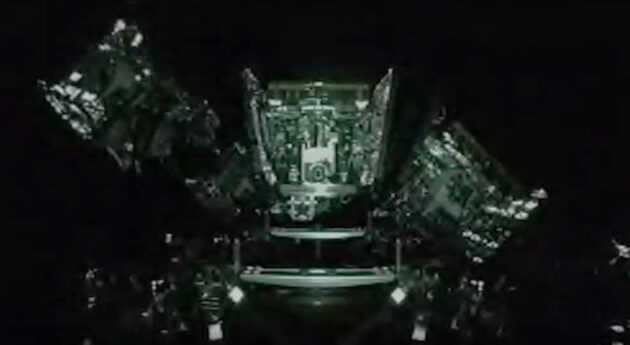Several days after the launch of the first full-scale satellites in Amazon’s Project Kuiper constellation, the mission team is still on an adrenaline high, according to the team’s leader.
“It’s early in the mission and we still have lots of work ahead,” Rajeev Badyal, Amazon’s vice president of technology and head of Project Kuiper, said today in a LinkedIn post. “It’s been an entirely nominal start though, and that’s all thanks to the talent, passion and dedication of the Kuiper team. They’ve delivered in a big way here – for Amazon and for our customers – and I’m so proud.”
Project Kuiper is Amazon’s effort to build a satellite-based broadband network that could eventually serve millions of people around the world. It’s seen as a competitor for SpaceX’s Starlink network, which already has more than 7,000 satellites in low Earth orbit and more than 5 million users.
Following up on a test mission in 2023, Amazon had its first batch of 27 operational Project Kuiper satellites launched into orbit from Florida on a United Launch Alliance Atlas V rocket on Monday. Those satellites are now being checked out by the mission operations team in Redmond, Wash. The launch kicked off a campaign that’s expected to take years to execute, leading to the deployment of 3,232 satellites.
Amazon’s satellites are built at a 172,000-square-foot facility in Kirkland, Wash., with additional work being done at Project Kuiper’s Redmond headquarters.
The company hasn’t shared many images of the satellites, apparently for proprietary reasons. Badyal, however, posted a video that provided a rare peek of the satellites being deployed in orbit from the Atlas V rocket’s Centaur upper stage. The video shows the satellites rising from the upper stage in sequence and floating off into space. A thin blue slice of Earth’s disk can be seen at the end of the clip.
“All satellites were successfully deployed right on time 36 minutes into the mission,” Badyal reported.
Amazon says it has already begun shipping and processing satellites for the next launch, which will also involve an Atlas V rocket lifting off from Cape Canaveral Space Force Station in Florida.
Under the current terms of its license from the Federal Communications Commission, more than 1,600 satellites are supposed to be deployed by mid-2026 – but Amazon is likely to ask regulators for an extension of the deadline.
The current schedule calls for Amazon to begin delivering satellite broadband service to customers later this year.
Hat tip to Isaac Alexander at Hype.
Read the full article here










